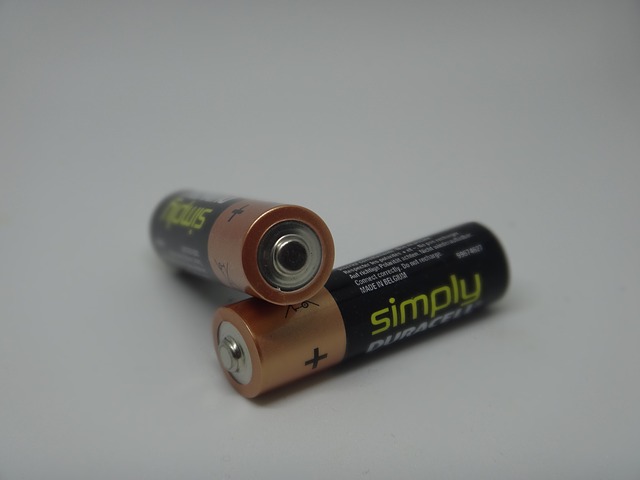Lithium Vanadium Phosphate Battery-Definition and Performance
Mar 02, 2020 Pageview:2992
If you’re entirely new to the concept of lithium vanadium phosphate batteries and especially when it comes to vanadium, the following info would help expound your mind.
Vanadium is a strategic and rare chemical element that takes the symbol V and has an atomic number of 23. It is usually soft, grey, and ductile transition metal that comes with a good structural ability and a stable natural resistance to corrosion and stability against acids, alkalis and even salt water. The element is typically found in various chemically combined forms that tend to occur naturally in as many as 65 different minerals as well as fossil fuel deposits. It is normally manufactured from steel smelter slag and sometimes from the flue dust of heavy oil and can also be a by-product of the uranium mining process.
Vanadium has begun to play a crucial role in the enhancement of battery technology and especially in the vast battery applications of electric and hybrid vehicles. It can also be used in stationary energy storage application areas for both the renewable and non-renewable energy. Vanadium tends to be a supercharger to batteries and also significantly improves their performance. When added to lithium-ion batteries in electric vehicles, vanadium tends to increase the energy density and voltage of the cells and this is a significant benefit because energy density determines the distance or range of the car while voltage determines the available torque.
Vanadium flow batteries tend to store their energy in tanks and the electrolyte, that transfers charges within the cells, flows from tank to tank through the system. It tends to be much easier to adapt flow batteries to commercial or industrial-scale applications while reducing the cost. Also, vanadium-based flow energy storage systems can always operate for a very long period. The active ingredient is usually a low-cost, rechargeable electrolyte that doesn’t wear out because of the type of chemical reaction involved. Vanadium-based battery systems are designed for industrial-size applications without any danger of thermal reactions due to high power changes.
What is the definition of lithium vanadium phosphate battery?
Lithium vanadium phosphate (LVP) battery, can be defined as a proposed type of lithium-ion battery that makes use of vanadium phosphate in the cathode. With the development and improvement of battery technology, lithium vanadium phosphate batteries keep impressing many commercial markets around the globe. These cells represent one of the most reliable and promising battery solutions in the electric vehicle industry providing high-energy densities thus, enabling electric cars to favorably be able to compete with gas vehicles on a typical performance basis.
Lithium-vanadium phosphate batteries provide greater safety measures than the ones in mobile phones or laptops and even greater power than the cells found in modern electric vehicles. These batteries tend to majorly outdo their competition because of one most significant element in them known as vanadium. The batteries have been subjected to commercialization with work ranging from various manufacturers developing different models, to applications in electric vehicles, and rechargeable button sizes cells designed for backup system support.
Advantages of lithium vanadium phosphate batteries
The lithium-vanadium phosphate batteries have improved safety measures as compared to many other battery types. They also provide greater power in its many applications such as electric vehicles. For example, when compared to the lithium manganese-oxide that is used in electric vehicles, lithium-vanadium phosphate is capable of providing up to 6 times the power.
Lithium-vanadium batteries are the future hope to improving lithium batteries one step at a time. These cells provide potential benefits capable of driving battery technology into a better future with higher rates of technological evolution.
What are the performance characteristics of lithium vanadium phosphate battery?
The rampant properties of this monoclinic lithium vanadium phosphate batteries are usually inspected through X-ray diffraction and various electrochemical methods available. The electrochemical measurements that are conducted in half cells with lithium-vanadium phosphate incorporated as the cathode material and lithium metal on the anode have proven that this material can exhibit excellent reversibility when the charge extracted is confined to that similar to two lithiums per formula unit.
The handled extraction of the last lithium is usually observed at a potential that is greater than 4.6V versus Li/Li+ and includes a major overvoltage. On discharge, a solid solution kid of trend is observed after which the two-phase regime for the previous lithium insertions reappears. Moreover, X-ray diffraction has proven that the original structure is usually recovered. The cycling performance and rate capability are also put forward for batteries on lithium-vanadium phosphate as well as graphite.
In conclusion, lithium-vanadium phosphate has exhibited a better performance when used as the cathode in lithium-ion batteries as compared to other materials. These batteries provide better and greater safety measures thatspecialed the many issues faced by standard lithium-ion cells. Also, due to the greater density provided by these cells, there is a greater power when they are installed into their different applications, hence, result to a higher performance rate.
What is the encapsulation of lithium vanadium phosphate battery?
Lithium-vanadium phosphate cathode materials have received a lot of attention for the many lithium-ion battery applications due to their excellent thermal stability as compared to other oxide compounds. The great rate performance and cycling stability of these lithium-vanadium phosphate batteries are due to their capabilities in maintaining low charge transfer resistance or even a higher electrical conductivity as well as an iconic conductivity.
Conclusion
Lithium-vanadium phosphate batteries are known to be unique and special cells that combine a variety of spectacular features for the improvement of lithium battery technology especially with the vanadium phosphate used in the cathodes. There are many ways in which vanadium phosphate can be applied but it has exhibited better performance rates when included in different battery types.
These batteries hold a brighter future to when it comes to providing greater power for many conventional and large-scale industrial uses. Also, with the major benefits that lie in the battery’s safety measures, lithium-vanadium has proven to be quite the perfect type of battery around. The future holds a wide variety of amazing opportunities for this cell.
- Prev Article: Cheapest Lithium Marine Batteries Safety and Buying
- Next Article: NiMH Charger Lithium Batteries-Charging Methods
Leave Message
Hottest Categories
-
Hottest Industry News
-
Latest Industry News












